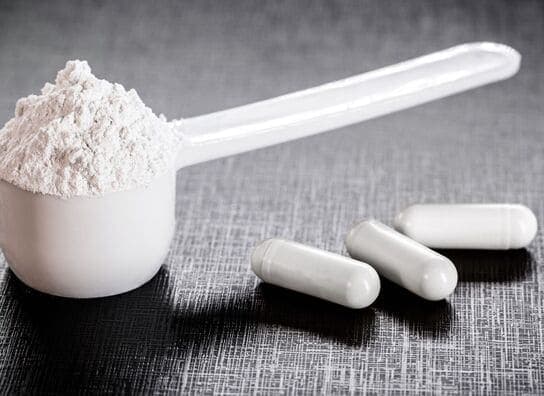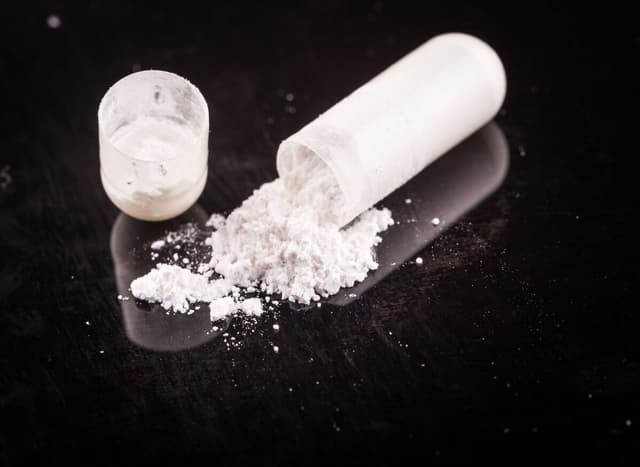Best Time to Take Creatine for Muscle Growth and Performance

February 29, 2024
If you’re looking to optimize your muscle growth and performance, you've likely come across creatine. But when is the best time to take creatine to maximize its benefits? In this article, we'll explore the science behind creatine timing, how it affects your workout results, and whether taking it before or after your workout makes a difference. If you’ve been wondering when to take creatine for optimal gains, this post is for you!
Creatine is one of the most researched and effective supplements for improving strength, muscle mass, and exercise performance. However, many people are unsure about the timing of its consumption. Should you take creatine before a workout to fuel your muscles, or is it better after to aid recovery? Let's dive deeper to find out when is truly the best time to take creatine.
What is Creatine and Why It Matters?
Creatine is a naturally occurring compound found in the muscles, and it plays a vital role in producing energy during high-intensity activities like weightlifting, sprinting, or other short bursts of activity. By supplementing with creatine, you're helping your muscles generate more ATP (adenosine triphosphate), which serves as the primary energy source for these intense movements.
Most commonly, creatine is taken in the form of creatine monohydrate, which has been shown to be the best creatine for enhancing athletic performance. It’s no surprise that athletes and bodybuilders alike swear by it. However, timing your creatine intake can be key to maximizing its benefits.
When is the Best Time to Take Creatine? Pre-Workout or Post-Workout?
There’s been a long-standing debate about whether it’s best to take creatine before or after a workout. To settle this, let's break down the evidence for both options.
Pre-Workout Creatine: Fueling Your Muscles
Taking creatine before your workout makes sense, right? After all, it’s supposed to increase your energy production and give you more power during high-intensity exercises. Some fitness enthusiasts believe that taking creatine around 30 minutes before training gives your muscles the fuel they need to perform better.
Research shows that creatine increases phosphocreatine stores in your muscles, leading to more explosive power and the ability to push through more reps or heavier weights. However, the effects of creatine aren’t immediate. It takes time for your body to fully saturate your muscles with creatine, so it’s not as simple as drinking a creatine shake before hitting the gym.
- Pros of Pre-Workout Creatine:
- May give a slight boost in strength during high-intensity activities.
- Supports short bursts of energy during weightlifting, sprints, or HIIT.
- Cons of Pre-Workout Creatine:
- Takes time to build up in your muscles, so the immediate benefit may not be noticeable.
- May lead to stomach discomfort when taken right before intense physical activity.
Post-Workout Creatine: Aiding Recovery and Muscle Growth
On the flip side, many experts suggest that taking creatine after a workout may be more beneficial. Why? Post-workout is the time when your body is most receptive to absorbing nutrients, including creatine. Studies have shown that consuming creatine with a post-workout meal, especially one rich in carbohydrates, helps with muscle recovery and replenishment.
In fact, a study published in the Journal of the International Society of Sports Nutrition found that participants who took creatine after their workout experienced more significant muscle growth and strength increases compared to those who took it before their workout. This suggests that post-workout might be the best time to take creatine if muscle growth and recovery are your primary goals.
- Pros of Post-Workout Creatine:
- Enhances muscle recovery by replenishing depleted energy stores.
- May lead to greater long-term gains in muscle mass.
- Works synergistically with post-workout meals rich in carbs and protein.
- Cons of Post-Workout Creatine:
- Slightly delayed absorption compared to taking it pre-workout.
- Some may forget to take it after exercise due to fatigue or other distractions.
Should You Take Creatine on Rest Days?
It’s important to note that creatine is most effective when taken consistently, even on rest days. Your muscles need time to saturate with creatine, and skipping days can reduce its overall effectiveness. Whether you’re working out or not, maintaining a regular schedule ensures your muscles remain loaded with the energy they need for your next workout.
A common approach is to take 3-5 grams of creatine daily, which allows your muscles to maintain high creatine stores. This consistency is key, as it takes around 1-2 weeks of regular supplementation for your muscles to become fully saturated.
Our Top Recommendations

Optimum Nutrition Micronized Creatine Monohydrate Powder
Micronized for easy mixing, supports muscle growth and endurance.
See on Amazon$0.35 per 5g serving

Nutricost Creatine Monohydrate Micronized Powder
Third-party tested, non-GMO, 5g of pure creatine per serving.
See on Amazon$0.2 per 5g serving

NSF Certified, supports muscle power and recovery.
See on Amazon$0.46 per 5g serving

ProMix Creatine Monohydrate Powder
Micronized, additive-free, ideal for performance and recovery.
See on Amazon$0.36 per 5g serving

NOW Foods Sports Nutrition Unflavored
100% pure creatine, GMP certified, boosts strength and endurance.
See on Amazon$0.2 per 5g serving
Here are some tips on taking creatine on rest days:
- Stick to your regular dose (usually 3-5 grams).
- Pair creatine with a meal that includes carbs for better absorption.
- Take it at any time of day—consistency matters more than timing on rest days.
How to Maximize Creatine’s Effectiveness: Practical Tips
Now that we’ve explored the best time to take creatine, here are some actionable tips to get the most out of your supplementation routine:
1. Choose the Best Creatine
The form of creatine you choose matters. Creatine monohydrate is widely regarded as the best creatine for muscle growth and performance due to its effectiveness, affordability, and extensive research backing it. Other forms, like creatine hydrochloride or creatine ethyl ester, claim to offer better absorption, but there's little evidence to suggest they're superior to monohydrate.
2. Combine Creatine with Carbs
Creatine uptake can be enhanced by pairing it with a carbohydrate-rich meal. The insulin response triggered by carbs helps shuttle creatine into your muscles more effectively, improving its absorption.
3. Stay Hydrated
Creatine can cause water retention within the muscles, which is why it's important to stay hydrated. Make sure you're drinking plenty of water, especially during periods of intense training.
4. Loading Phase: Yes or No?
Some people recommend a loading phase for creatine, which involves taking around 20 grams daily for the first 5-7 days. This can help saturate your muscles quicker. However, this phase isn’t necessary for everyone, and many individuals see results just fine without it.
5. Consistency is Key
Whether you take creatine pre or post-workout, the most important factor is consistency. Taking it regularly helps maintain high creatine levels in your muscles, so you can continue to perform at your peak.
Common Myths About Creatine Timing
There are several misconceptions surrounding creatine supplementation, particularly regarding timing. Here’s a look at some myths and the truth behind them:
- Myth 1: Creatine must be taken immediately before exercise to work.
- Truth: Creatine works over time to saturate your muscles. Taking it regularly is more important than exact timing.
- Myth 2: Creatine causes dehydration.
- Truth: Creatine draws water into your muscles, but as long as you stay hydrated, it won’t cause dehydration.
- Myth 3: Creatine only benefits bodybuilders.
- Truth: While popular among bodybuilders, creatine benefits anyone who engages in high-intensity, short-burst activities like sprinters, weightlifters, and even soccer players.
Conclusion: The Best Time to Take Creatine for Maximum Gains
So, when is the best time to take creatine? The truth is, whether you take it before or after your workout, consistency is the most critical factor. If you want to see the best results in muscle growth and performance, take 3-5 grams of creatine daily, whether it’s pre-workout for a potential power boost or post-workout for enhanced recovery.
Ultimately, the best creatine is the one that fits seamlessly into your routine and that you can take consistently. As long as you’re maintaining regular intake, you’re on your way to unlocking the full benefits of creatine.






